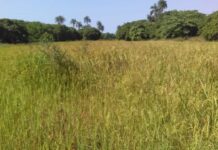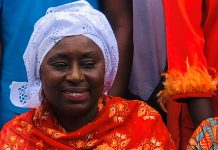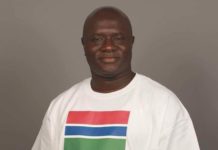A presentation by Fatou Jagne Senghore on behalf of Article 19 to the 57th Ordinary Session of the Africa Commission on  Human and Peoples’ Rights scrutinised the state of freedom of the media and access to information in Africa, citing specific examples that include The Gambia. Below is the full text.
Human and Peoples’ Rights scrutinised the state of freedom of the media and access to information in Africa, citing specific examples that include The Gambia. Below is the full text.
ARTICLE 19 notes with appreciation the work of the Special rapporteur on freedom of expression and access to information. We appreciate her continued engagement with governments and CSOs on the continent to engage on the passage of access to information laws, decriminalisation of expression related offenses and accountability for attacks on journalists.
AGGRESSION ON FREEDOM OF EXPRESSION
Media practitioners, journalists, cartoonists, and human rights defenders continue to face attacks and are forced to carry out their work under constant pressure from the authorities and non state actors and in environments of widespread impunity. For example, between January – October 2015, 71 journalists have been individually attacked in Kenya but only 3 cases have been fully investigated and the perpetrators taken to Court. Three days to celebration of 2015 World Press Freedom Day, John Kituyi, publisher and Editor of the Weekly Mirror newspaper was killed and to date no one has been held responsible.
Somalia is one of the most dangerous countries for any journalist globally. Three journalists have been killed in 2015 and more than 40 others arbitrarily arrested in the course of their work. Many others have been physically attacked while others have suffered incessant legal harassment. The rise in anti-press attacks against the press in Tanzania in the past five years is worrying, with ARTICLE 19 recording over 30 cases of journalists attacks since 2010. During the just ended elections, a record of 8 social media communicators were charged under the Cybercrime Act purely for exercising their freedom of expression. Their cases are ongoing.
In Gambia, media practitioners continue to work in an atmosphere of constant fear and self- censorship. Since January 2015, Taranga FM the only community media that broadcast news to communities was arbitrary forced to stop its news broadcasting in the aftermath of the attempted coup. On July 2, it’s Manager, Alagie Abdoulie Ceesay was abducted for 11 days, forced to open his emails and severely tortured: he was briefly released and detained since, he is now facing sedition charges. Two of his friends were forced to testify against him, but during the process they refused to continue and have since run away from the country for fear for their lives.
In the aftermath of the September 2015 attempted coup in Burkina Faso, ARTICLE 19 has documented a series of attacks and cases of aggression and violence towards the media, working journalists and demonstrators. About 10 incidents have been documented, ranging from arbitrary closure and banning of media outlets, physical assaults to cases of damaging of property. 10 people were killed and around 100 injured for expressing their opinions.
Many African countries still retain laws within their penal code, which unjustly restrict the freedom of expression. These laws define offences related to promotion of sectarianism, criminal defamation, insult laws, anti- terrorism and national security laws, which have been used to jail journalists and restrict public space in many countries. They have continued to have a chilling effect on the media and hinder freedom of expression.
ACCESS TO INFORMATION
Despite the significant increase m the number of countries recognising the right to access information on the continent, a large portion of African states still seem unable or unwilling to adopt access to information laws.
A number of governments refuse to provide citizens with even the most basic information, seemingly due to a combination of impunity and lack of political will, or a lack of systems enabling the state to proactively provide vital information. Laws on secrecy still exists on the statutes and has proved a big hindrance to full implementation of Access to Information laws
Enactment of the access to information laws also needs to be accompanied by building of civil capacities. There will be need for civic education to enable ordinary people to access information on the law and empowering government officials to make information accessible to citizens.
In conclusion, we therefore urge African Governments to:
- Expedite the process of enactment of Access to Information laws and make them operational.
- Repeal laws that are inconsistent with the right of Access to Information
- Repeal criminal defamation laws and other similar laws which criminalise freedom of expression.
- Ensure that the all those who violate rights of journalists and human rights defenders are held accountable
- Invite the Special Rapporteur on Freedom of Expression and other relevant mandates to conduct country visits to countries where journalists and human rights defenders are at risk as a sign of further commitment to promoting this right as articulated in Article 9 of the Charter.
Thank you




















